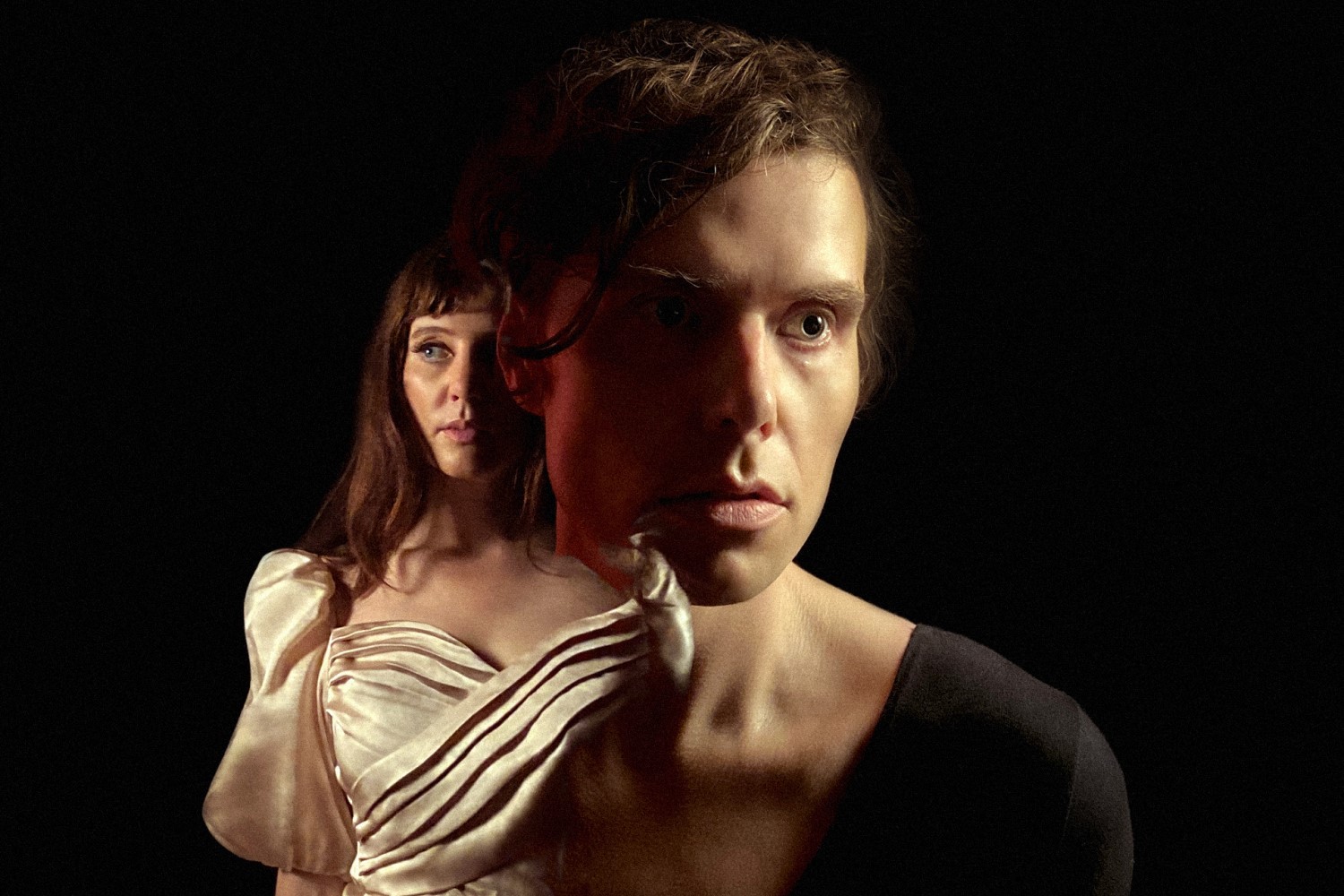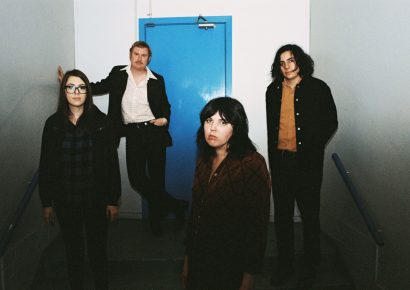Popular Music – the new collaboration between Zac Pennington and Prudence Rees-Lee – tackle songs of longing and desperation from the Hollywood canon on debut album In Darkness.
After abandoning Parenthetical Girls, Zac Pennington was going through a period of writer’s block and creative dysphoria. The Portland-based Parenthetical Girls – of which Pennington was the only consistent member – had released four LPs of orchestral indie pop between 2004 and 2013.
He wasn’t interested in giving up on music, but for a few years, everything Pennington tried felt inconsequential. It was a disorienting experience for someone whose entire adult life has been rooted in the creation and performance of music. He needed a way out of this impasse and it eventually came to him while staying in a haunted apartment in the Los Feliz neighbourhood of Los Angeles.
The fruits of this breakthrough appear on the album In Darkness, the debut release from Pennington’s new project, Popular Music. Popular Music is a duo that sees Pennington working in close collaboration with Melbourne musician Prudence Rees-Lee (aka Prudence).
“I’d spent most of my adult life writing words to songs by myself and without the practice, I became basically untethered,” says Pennington. “I don’t generally ascribe to the album-as-art-therapy narrative, but the long, indulgent process of In Darkness became an exercise in defining a voice without the benefit of my own words.”
Indeed, while the creation of In Darkness was effective in resuscitating Pennington’s musical practice, it’s an album of cover songs. More specifically, it consists of 12 songs that originally featured in 20th Century Hollywood films.
The selections are drawn from a diverse list of films, including Charlie Chaplin’s Modern Times and the 1961 film adaption of West Side Story, as well as ‘60s comedies, ‘70s horror and more recent staples like Footloose and Philadelphia.
“The only criteria was that they be songs which had been written for a movie,” says Pennington. “I want to say we were drawn to more esoteric songs, but that’s not really true – some of them are massive hits which have been interpreted many, many times before.”
One of the more recognisable inclusions is ‘Smile’ from Modern Times, which has been recorded by the likes of Sammy Davis Jr. and Michael Jackson. They also take on Irving Berlin’s ‘Let’s Face the Music and Dance’, which originally appeared in the 1936 musical, Follow the Fleet, and West Side Story’s ‘Somewhere’, which has been reworked by everyone from The Supremes to the Pet Shop Boys.
“Once [the songs] started coexisting on cassette, we started to see thematic through-lines emerge, and it was satisfying how much sense they all made together as a collection,” says Rees-Lee. “They’re all songs of longing and desperation. They all have a sadness.”
The connection between Rees-Lee and Pennington dates back several years, but they’d long deferred a collaborative project. Given the conceptual framing of In Darkness, however, Rees-Lee’s involvement felt almost imperative.
“My music has always had a cinematic bent and for whatever reason, many of my favourite songs are from films,” says Rees-Lee.
Rees-Lee joined Pennington in the Los Feliz apartment to start work on what would become In Darkness. They were equipped with a Tascam eight-track cassette recorder and a collection of analogue synthesisers and rhythm boxes. It’s not much to work with, but the space itself exerted its own influence over the music that was generated.
“The apartment had an energy,” says Pennington. “As I understood it, it had been originally owned by session string players who’d played in various Hollywood orchestras during the Golden Age.
“There was a massive Steinway in the living room, and every surface was wood panelled, designed to host chamber music rehearsals. It was a perfectly preserved mid-century time capsule and the darkest apartment in Los Angeles. There were noises in one of the bedrooms at night. In Darkness is basically just an audio record of that place.”
In Darkness was actually completed on the other side of the country, in a converted barn in a remote corner of Upstate New York. Pennington’s Parenthetical Girls ally, composer Jherek Bischoff, added some extra atmospheric details, while Rees-Lee arranged parts for string quartet.
“Funny enough, the string parts were often inspired by arrangements from different film soundtracks altogether,” says Rees-Lee. “The violin in ‘Bedazzled’ is a skewed take on the strings in ‘Je t’aime moi non plus’ and the string parts in ‘Holding Out For A Hero’ were greatly inspired by Michael Abels’ work on Us.”
The finished product retains the sort of intimacy you’d expect from the initial DIY recording sessions, but is furnished with wonderful shades of grandeur as befits the concept. Pennington and Rees-Lee are not only satisfied with the outcome, but motivated to keep working in collaboration.
“We’re working on an album of originals right now, but there’s at least an EP’s worth of film songs we didn’t get around to recording that are still burning holes in our respective pockets.”
In Darkness is out now. For more from Popular Music, visit their website.
Never miss a story. Sign up to Beat’s newsletter and you’ll be served fresh music, arts, food and culture stories three times a week.







